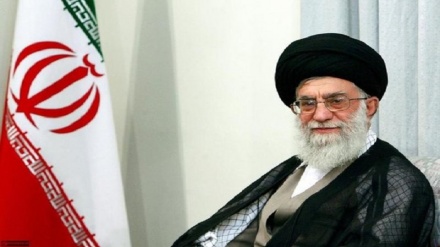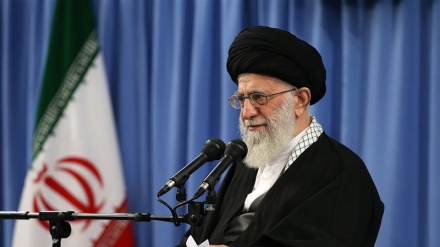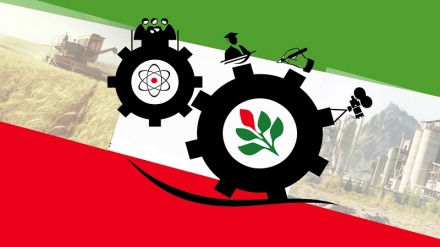The Second Phase of the Revolution (4)
The Islamic Revolution of Iran has entered the fifth decade of its life with power, exuberance and motive.
Ayatollah Khamenei found this an appropriate chance to issue a comprehensive statement which has been dubbed as the "Second Stride" or "Second Phase" of the Revolution. Part of the Leader's statement deals with the blessings of the Islamic Revolution which we mentioned some of them in the previous episode. Here we are going to address some other blessings of the Islamic Revolution.
The despotic Pahlavi regime had caused huge rift between the classes of people. Most of the facilities had been concentrated in the capital, Tehran, and were in the hand of the royal family. Nearly all of the villages and many of the small towns were deprived of hygienic facilities and healthcare. The scientific and academic centers in the world have conducted researches on the Islamic Revolution. They have admitted that this revolution has been successful in improvement of the living condition of the poor. For instance, a research was conducted by Virginia University on the basis of the statistics of World Bank and International Monetary Fund. The research stresses to have reviewed the change in poverty in Iran for the years 1978-2004. In 1978, 28% of the households and 25% of the people living in cities were under the poverty-line. This number was 66% and 60% for villagers, respectively. Ayatollah Khamenei, in his comprehensive statement, described justice in distribution of public facilities as a blessing of the revolution while saying, "This lofty value should shine like an unmatched gem on the Islamic Republic's forehead, but it has not yet. I am not satisfied but it should not be taken to mean that nothing has been done for the establishment of justice. The reality is that the achievements made in struggling injustice over the past four decades are not comparable to any other era in the past. During the tyrannical regime, most of the services and revenues of the country were available only to a small group of the residents of the capital city or the like of them in some other parts of the country. The people in most cities, especially in remote areas and villages, were at the end of the list and often deprived of basic infrastructure and services. The Islamic Republic has been one of the world's most successful governments in relocating its services and wealth from the capital to all parts of the country, and from the affluent areas of the cities to the poor neighborhoods. The great statistics on building roads and housing construction; the establishment of industrial centers; the reformation of agricultural affairs; distribution of electricity, water as well as building medical centers, universities, dams, and power plants and the like even to the most remote regions of the country, are really honourable. Nevertheless, the justice as expected by the Islamic Republic- that seeks to follow the role model of Imam Ali- is far superior to that, and I pin my hope in realizing it by you the youths."
Another blessing of the Islamic Revolution is the increase of spirituality and ethics in the public climate of the society. Referring to Imam Khomeini's lofty disposition throughout the era of struggle against the Pahlavi regime and after the victory of the Islamic Revolution as the cause of increase of spirituality among different strata of people, Ayatollah Khamenei says, "That spiritual and mystic who had freed himself of material attachments, headed the country where the people's beliefs were very deeply-rooted. Although the propaganda promoting corruption and promiscuity during the Pahlavi era had dealt tough blows to the nation and had dragged a wallow of western immorality into the lives of middle-class people- particularly the youths- the religious and ethical approach of the Islamic Republic attracted the apt and bright hearts, especially those of the youths, and the climate was transformed to the favor of religion and morality."
The Leader of the Islamic Revolution considers the struggles of the youths on during the 8 year Holy Defence as another manifestation of spiritual radiance in the society. He writes in his comprehensive statement on the 40th anniversary of the victory of the Islamic Revolution known as the Second Phase of the Revolution, "Fathers, mothers and wives, out of a sense of religious duty, bid farewell to their loved ones who rushed to the various fronts of jihad; then, once they faced their blood-soaked or damaged bodies, they accepted the calamity while being thankful of God."
In the view of Ayatollah Khamenei, another example of increase of spirituality in the country is the unprecedented crowdedness of mosques and religious centers. The Leader also refers to E'tekaf and the huge march of Arbaeen, almonds, charities and so on which are carried out with more quality and quantity every year. He also points to the Jihadi trips and construction Basij which is filled by voluntary university students and aims at development of deprived regions across the country. Ayatollah Khamenei states, "This has all happened at a time when the increasing moral decline of the west and its followers as well as their massive propaganda to drive men and women into the wallows of corruption, has isolated morality and spirituality in major parts of the world; and this represents another miracle of the Revolution and the active and pioneer Islamic system."
Another blessing of the Islamic Revolution in the view of the Leader is the ever-increasing perseverance against bullies and arrogant in the world. Ayatollah Khamenei wrote, "The monopolizing powers of the world- that have lived on trespassing the independence of other countries and plundering their vital interests in order to attain their evil intentions- have confessed to their weakness in the face of the Islamic and revolutionary Iran. In the life-inspiring climate of the Revolution, the Iranian nation managed to first expel the puppets of the US and the elements who betrayed the nation, and since then, the Iranian nation has vigorously prevented any restoration of dominance over the country by bullying powers."
RM/EA


